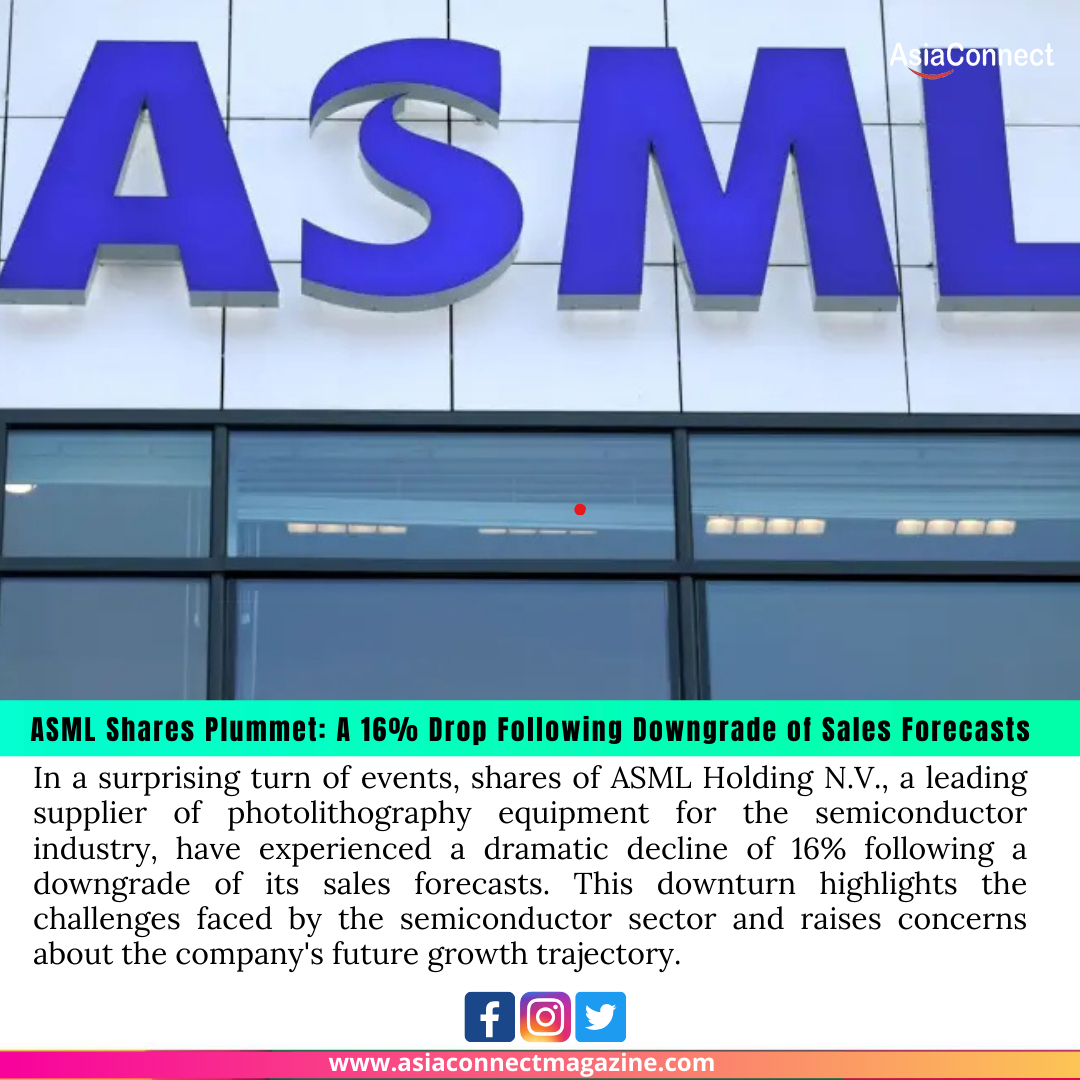In a surprising turn of events, shares of ASML Holding N.V., a leading supplier of photolithography equipment for the semiconductor industry, have experienced a dramatic decline of 16% following a downgrade of its sales forecasts. This downturn highlights the challenges faced by the semiconductor sector and raises concerns about the company’s future growth trajectory.
ASML has long been considered a bellwether in the semiconductor industry, primarily due to its critical role in the production of advanced chips. As the demand for semiconductors surged in recent years, driven by the proliferation of digital devices, ASML’s innovative technology positioned it favorably within the market. The company’s extreme ultraviolet (EUV) lithography machines have been essential for manufacturers aiming to produce smaller, more efficient chips. However, the latest downgrade has sent shockwaves through the market, revealing a more tempered outlook.
Analysts attribute the downgrade to several factors, including a slowdown in demand from major customers, ongoing geopolitical tensions, and supply chain disruptions that have plagued the industry. The forecasted decline in sales raises alarms about potential overcapacity in the market, as semiconductor manufacturers grapple with fluctuating demand levels. ASML’s dependency on a handful of key clients, particularly in the automotive and consumer electronics sectors, further compounds this uncertainty.
In recent months, global economic conditions have also played a significant role in shaping the semiconductor landscape. Rising inflation, coupled with increased interest rates, has dampened consumer spending, leading to reduced orders for electronic devices. This ripple effect has left semiconductor manufacturers reassessing their production plans, thereby impacting ASML’s order book. As a result, the company has revised its growth expectations downward, prompting investor concerns.
Moreover, the geopolitical climate has not been favorable for the semiconductor industry. Trade tensions, particularly between the United States and China, have created an unpredictable environment for businesses reliant on global supply chains. Restrictions on technology transfers and export controls have forced many companies to rethink their strategies. ASML, which relies heavily on the global market for its sales, finds itself navigating these complex challenges while trying to maintain its competitive edge.
The immediate impact of the downgrade was evident in the stock market, with investors reacting swiftly to the news. A 16% drop in share price reflects a significant loss of confidence among shareholders, as they recalibrate their expectations regarding ASML’s future performance. Analysts and market observers are now closely monitoring the company’s next moves, particularly how it addresses the current downturn in demand and mitigates risks associated with geopolitical tensions.
Looking ahead, ASML faces an uphill battle. The company must not only reassure investors of its long-term growth potential but also adapt to the shifting dynamics of the semiconductor market. Diversifying its customer base and exploring new markets could be essential strategies for navigating these turbulent times. Additionally, investing in research and development will be crucial for maintaining its technological edge in an increasingly competitive landscape.
In conclusion, ASML’s 16% drop in shares following a downgrade of sales forecasts underscores the volatility and challenges faced by the semiconductor industry. As global economic conditions and geopolitical tensions continue to evolve, ASML’s ability to adapt and innovate will be critical in determining its future success. Investors and industry stakeholders alike will be watching closely to see how the company navigates these complex challenges in the coming months.





